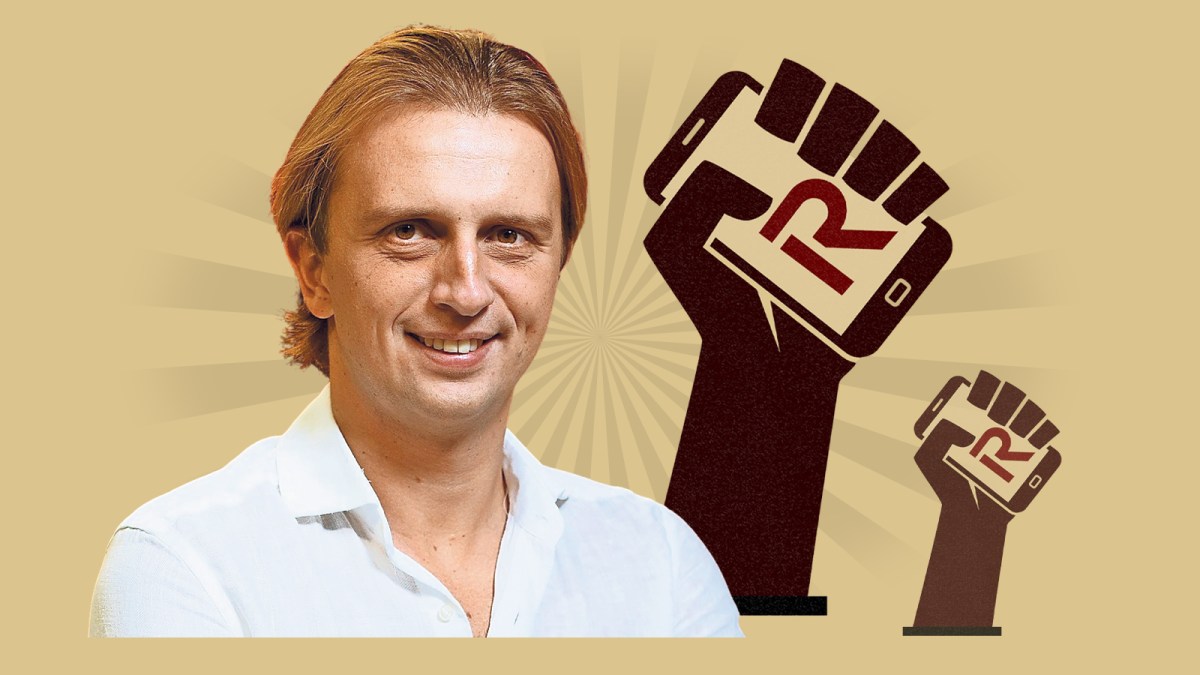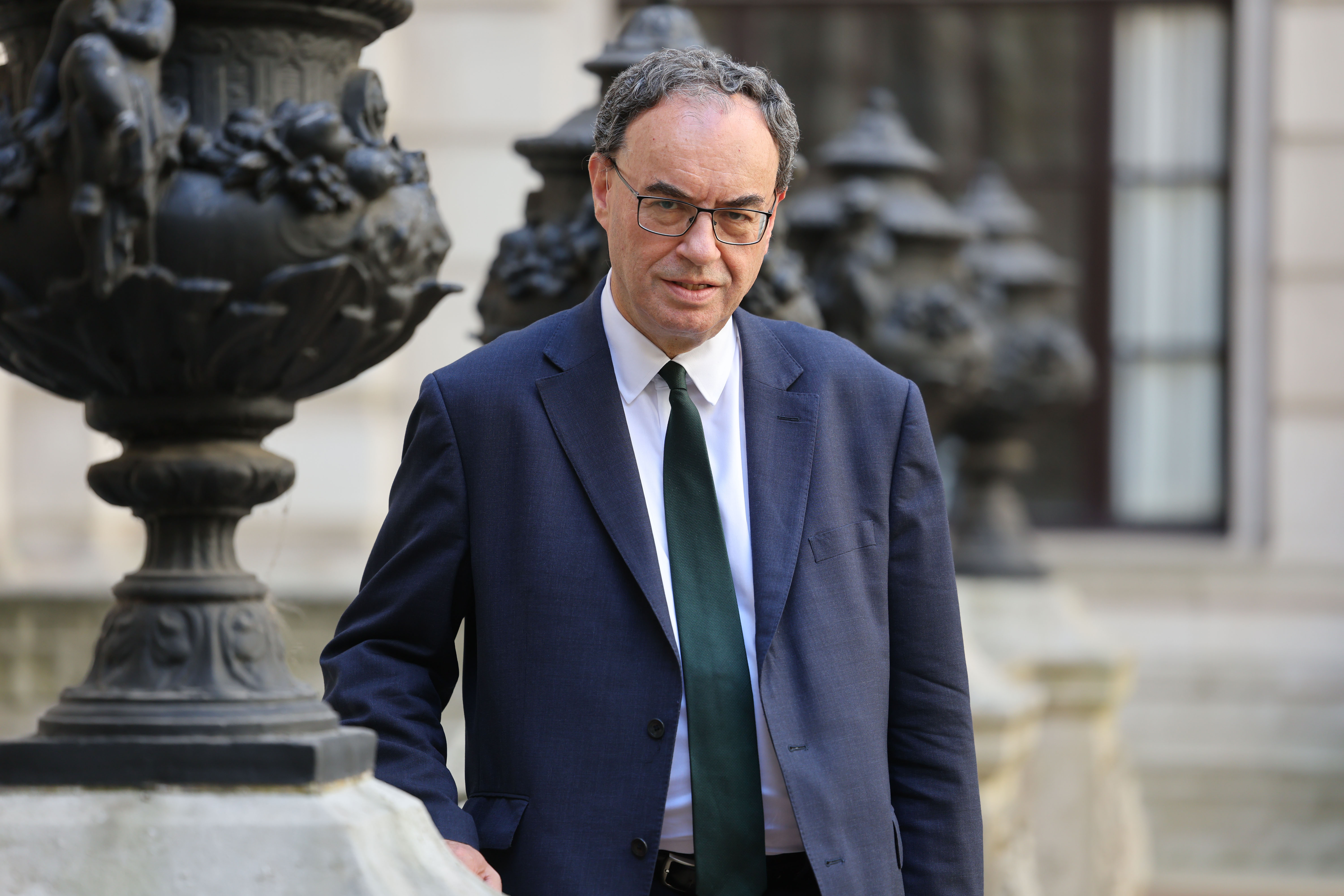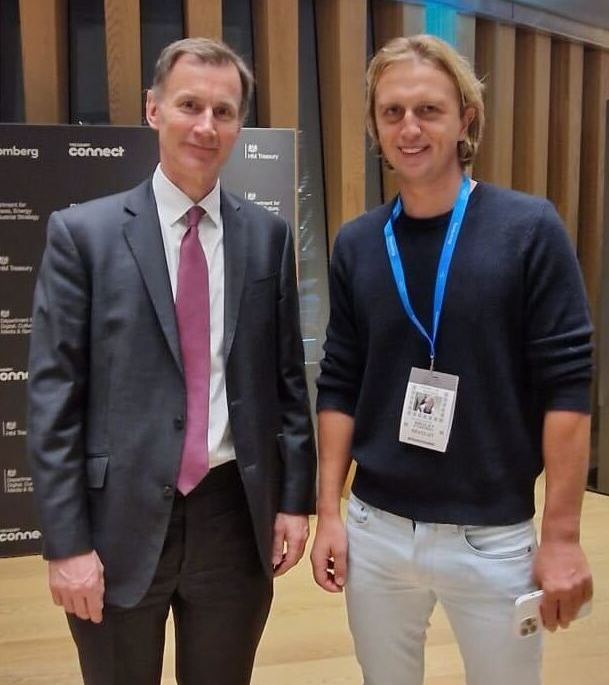Nik Storonsky received the present he had been hoping for just days after he turned 40 last year.
While the Russian-born founder of Revolut seemingly already has it all — his London mansion is said to have a swimming pool in the basement — he had been craving something that could not be bought.
For three years or more, he had been trying to convince the Bank of England to grant a banking licence to Revolut, the payments app he started in London a decade ago, to help him achieve his goal to create a global revolution in banking.
Wrapped in L-plates, it arrived on July 25 last year, sparking what is officially known as a “mobilisation” phase, which usually lasts 12 months and means that Revolut can hold a total of only £50,000 in deposits. So, while the City had been expecting Storonsky to formally launch the bank by the time he turned 41 a fortnight ago, there was no celebration.
Publicly, Revolut explained that it was still involved with the “the largest and most complex mobilisation ever undertaken in the UK” — its way of explaining that unlike other new banks that started with no customers, it has 60 million around the world.
But, in private, it is now known that a row had erupted over the prolonged process. Reeves, impatient to accelerate the process for the fintech to become a fully fledged UK bank, had orchestrated a meeting with Treasury officials, Revolut and officials at the Bank of England’s regulatory arm, the Prudential Regulation Authority — only for Bank of England governor Andrew Bailey to put a halt to the chancellor’s plans.
Andrew Bailey resisted the efforts of Rachel Reeves, below, to intervene in the process for Revolut to become a fully fledged UK bank
RICARD POHLE FOR THE TIMES
ISABEL INFANTES/GETTY IMAGES
Bailey’s attempt to prevent any political meddling in regulatory matters was quickly seen as having implications beyond Revolut. It exposed the tensions created by Reeves’s pressure on regulators to support her growth mission by supporting financial firms, and raised fears in the City that two figures who play such a key role in the financial system were locked in a damaging row.
• How tensions between Rachel Reeves and Andrew Bailey boiled over
So who is Storonsky? Why is the banking licence so important? And just how deep does the disagreement between Bailey and Reeves run?
A revolutionary
Known for his blond bob and heavily accented English, Storonsky has a reputation for a Stakhanovite approach to work.
So serious is he about turning Revolut — loosely named around the idea of a revolution in banking — into a global financial giant that he has earned a reputation for rarely smiling.
Nik Storonsky demands of staff at Revolut’s offices in Canary Wharf that they be like a “self-guided missile”
ALAMY
He explained his hard-driving approach in a podcast hosted by venture capitalist Harry Stebbings last year. Staff faced quarterly performance reviews and should be like a “self-guided missile”, he said. “They press the button and they reach the goals themselves.”
If Revolut’s staff had not reached the right level of performance in two months, they were unlikely to in a year, he explained. Perhaps they should not be surprised, however, as the neon signs in the company’s London headquarters in Canary Wharf display the no-nonsense motivational slogan: “Get shit done.”
Even so, Revolut reckons it had 1.6 million job applications last year, including 30,000 from those trying to gain entry to its “early careers” programme.
But those staff who can keep up the pace are well rewarded. Employees were able to cash in shares worth $500 million last year; Storonsky himself is said to have sold $300 million worth.
This work ethic has created a business that is reportedly going to be valued at $65 billion (£49 billion) in a funding round currently under way. It means that ten years after Storonsky envisaged launching a pre-payment card to allow people to spend and send money abroad fee-free, he has created a business valued more highly than any of Britain’s stock market-listed banks, with the exception of HSBC.
Cryptocurrency is among the services offered by Revolut
GETTY IMAGES
It now has 60 million customers in more than 40 countries and offers trading in stocks and shares, as well as crypto, hotel bookings and an e-sim service for mobile phones for travellers. Storonsky has even helped to coin a new verb in Ireland — “to revolut” — as locals use the app so frequently to transfer money to one another.
One of the first venture capital firms to back Revolut, at its first funding pitch in 2015, was Balderton Capital, where partner James Wise said it was now “one of the most interesting global technology names, certainly one of the most interesting companies right now for investors”.
Another early investor was Martin Mignot, a partner at fellow enture capital firm Index Ventures. He has seen a side of Storonsky rarely displayed in public: “He is cautious when he speaks in public. [But] in private he is much more relaxed, he’s very friendly, he’s gregarious — quite different to the way he looks.”
A former state champion swimmer, Storonsky has degrees in physics from the Moscow Institute of Physics and Technology and a master’s in economics from Moscow’s New Economic School. As a youngster, he spent his summers in Ukraine, where his father — a researcher at the Kremlin-owned energy business Gazprom — was born. He has given up his Russian citizenship since the invasion of Ukraine.
After arriving in London in the mid 2000s, Storonsky joined Lehman Brothers as a trader two years before it went bust in 2008, and then joined Credit Suisse, where he stayed for five years as a derivatives trader before leaving to take a punt on setting up Revolut.
Storonsky with former chancellor Jeremy Hunt
Key questions
He is still aiming to “simplify all things money” for 100 million daily active users in 100 countries. It is an ambitious goal, but he is facing a number of questions about his grip on the company, how it generates its profits and its battered reputation for handling fraud.
Unusually, for someone running a business with more than 10,000 staff, Storonsky has more than 40 people reporting directly to him. His stake in Revolut has risen above 25 per cent for the first time after a restructuring during a fundraising round last year. His shareholding could increase by another 10 per cent under a bonus scheme — but not until the company’s valuation hits $150 billion, according to reports.
Even after the business smashed through the £1 billion pre-tax profit mark for the first time in 2024, critics highlighted the near-300 per cent rise in revenue generated by its wealth arm, largely on the back of crypto trading.
This raised alarm bells as posing too much risk. But to Mignot at Index Ventures, it is a sign of strength: “They have a highly diversified revenue mix: some subscription, foreign exchange, interest income, crypto. That’s a big advantage,” he said.
Meanwhile, the company’s reputation for failing to tackle fraud is a lingering concern. Last year, the BBC reported that the cybercrime reporting centre Action Fraud received almost 10,000 reports of fraud naming Revolut in 2023 — more than others. Revolut insisted it has been investing in its financial-crime prevention team, which now makes up a third of its global workforce.
Why the licence matters
Reputation matters if Storonsky is going to convince customers to put their salaries into a bank account. In Britain, a banking licence would also help reassure customers that they would be covered by the Financial Services Compensation Scheme, which guarantees £85,000 in accounts should a bank go bust.
Revolut already operates as a bank in the European Union, initially because it had a banking licence that allowed it to passport across member states. But it has since grown so large that its continental arm is now supervised by the European Central Bank.
• Revolut picks Paris for European HQ
So, has it managed to become the main bank account for customers? It does not provide figures — other than to say that this rose last year — yet even in Ireland, where it has astonishing brand recognition and is used by more than three quarters of the adult population, this is not the case.
John Cronin, an Irish-based independent analyst at research firm Seapoint Insights, said: “People still aren’t using it as their primary account. They have three million customers [in Ireland] but most people use it for transfers or FX.”
That might also suggest Revolut is making little profit, as these services are mostly offered for low or no fees. But for Storonsky, the Bank of England licence is much more than about Britain.
He has said it would give comfort to other regulators, notably in America, to back its application there — a market he needs to crack if he wants to achieve world domination.
• At last, Revolut has a licence to lend. Now for America
Storonsky has addressed questions about the timing of the application for the banking licence in Britain in 2021 when the business already had millions of customers, unlike more conventional new entrants to the banking scene. This seems to have complicated the progress and Storonsky told Stebbings “you’d rather get a licence before you have customers”.
In 2018 he also told another interviewer that after Brexit, a banking licence in Britain was less appealing because his ambitions were in Europe.
Storonsky has become a a political football as the chancellor pursues her growth mission, while the Bank of England sticks to its guns
TOM STOCKILL FOR THE SUNDAY TIMES
‘Boot on the neck’
Whatever the reason for the late application, the long road to a licence has shone a light on the regulator’s processes and was not helped by a row with Revolut’s auditors over its accounts, which were delayed for two consecutive years.
At times, Revolut is said to have been uncertain about the information that the Bank of England needed, sparking outbursts of frustration from Storonsky. He was refusing to comment last week, as was Revolut.
The clash between the chancellor and the Bank governor over Revolut was intriguing the City, amid signs of warnings from Bailey over Reeves’s focus on regulators to get the economy growing. Bailey has spoken out against Reeves’s overhaul of the pensions regime and the dismantling of bank ringfencing, introduced after the 2008 banking crisis to protect high street customers. And he made it clear that he disagreed with her description of regulation as “boot on the neck” of growth — although this was not a reference to financial regulators.
One senior City source said Bailey may feel empowered after the former prime minister Liz Truss called for him to be fired after her short-lived premiership, while the bond markets on which Reeves relies to raise money for spending would be spooked if any row got out of hand. That might be why the Treasury was quick to say: “The chancellor and the governor have a strong and productive relationship and the government fully supports the operational independence of the Bank of England.” The Bank would not comment.
If there is row over regulation, for now, at least, Bailey and Reeves do not appear to have fallen out over fiscal policy in the way that Mervyn King and Gordon Brown appeared to in 2009, when the then-Bank governor said the chancellor of the day could not afford a fresh “fiscal stimulus” given the state of the public finances after the banking crash. And in parts of the City, there was sympathy for Bailey’s stance towards Revolut. One senior adviser said: “You’ve got to get it right with a business as big as Revolut.”
Mignot at Index Ventures said all fast-growing businesses were impatient, but “having a very strong and efficient regulatory regime in the UK is a big asset. Once you have the UK banking licence, it’s the gold standard and can be really exported everywhere.”
Storonsky will be hoping that proves to be the case before his next birthday.







